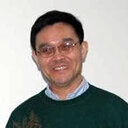Cerebral infarction as initial presentation in stress cardiomyopathy: Case report and literature review.
Keywords
Abstract
BACKGROUND
The typical symptoms of stress cardiomyopathy include sudden-onset chest pain and breathlessness or collapse as well as classical symptoms of cardiovascular disease; however, rare reports have described nervous system symptoms as the initial manifestation. Here, we report the case of a young man who presented with a large cerebral infarction as the main clinical symptom of stress cardiomyopathy to increase recognition of the disease.
UNASSIGNED
A 28-year-old man was admitted to our hospital for sudden-onset weakness of the right limbs and unconsciousness for 1 day. Ten days prior, he began consuming copious amounts of alcohol (500 mL/day) secondary to reactive depression.
UNASSIGNED
Imaging revealed a left internal carotid artery occlusion as assessed by carotid artery ultrasonography. Brain magnetic resonance imaging/magnetic resonance angiography showed new large left cerebral infarction complicated by a reperfusion injury. Moreover, cardiac ultrasonography showed decreased motion of the left ventricular apex, a 3.7 cm mural thrombus in the ventricular apex. The results of coronary and renal artery angiography did not reveal any significant epicardial coronary disease with thrombolysis in the myocardial infarction grade 3 in any of the coronary arteries.
METHODS
The patient was administered antiplatelet, anticoagulation, antihypertension, antibiotic, and neurotrophic therapies.
RESULTS
The symptoms of cerebral infarction improved significantly after 12 days of admission. Cardiac ultrasonography showed that the wall movement of the left ventricular apex had recovered fully and the mural thrombus resolved completely.
CONCLUSIONS
Patients with stress cardiomyopathy exhibit various clinical manifestations and characteristics. On the basis of our in-depth understanding of stress cardiomyopathy, clinicians should diagnose early and develop reasonable and effective therapies to prevent the harmful effects of related complications.



